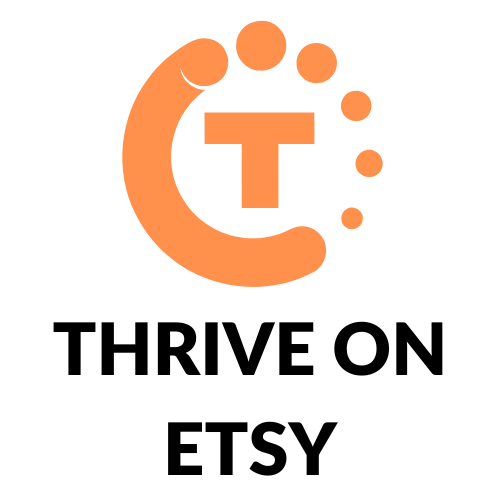So! You’ve decided to start a business. Whether you’re selling things directly on Etsy or in other marketplaces, Etsy stores can be big competitors for you.
Knowing more about your competitors can help you avoid any common mistakes or find any points of difference between your stores.
Read on to find out how you can research your competitors on Etsy and benefit your own business because of it!
What Is Market Research?

Market research is a process of examining the businesses or stores that are operating in a similar sphere to you, and researching how they present themselves and their products.
Market research is focused on many things; how people find businesses in this sphere, what leads to repeat customers, what customers themselves like about various businesses, and so on.
The field can be daunting – but you don’t have to do it all! Any market research is better than none.
Whether you just survey a small proportion of customers or businesses, or note only a few aspects that seem to give some businesses an edge, this is still useful information that you didn’t have before.
Why Is Market Research Important For Your Etsy Shop?

Etsy has around 7.5 million sellers on the platform. That’s a lot, and you’re just one of them.
It sure seems daunting! How can you make your shop stand out?
With some market research, you’ll be able to see what is helping stores in your sphere of the market succeed.
Using this to generate ideas around what you should sell, or how you should sell it, is a great way to make sure your store really pops in someone’s search list.
Market research will also give you ideas around how you can and should price your items, and is generally an incredibly valuable resource to make your store stand out from the crowd.
How To Research Your Competitors On Etsy

Look At The Same Stores Selling Your Products
Market research is great – but it’s not much use looking at stores that don’t sell the same things you do!
Depending on what kind of products you have, other Etsy sellers may be selling similar things (or even products that are exactly the same).
There are two ways to find stores that are competing with you through selling the same products.
The first is to use Etsy’s built-in category search. Etsy provides an extensive list of categories, and you can refine your search to the one that your business best fits into.
The second is to search for your products specifically by name. For example, if you are selling handmade wooden toys, you could search for “wooden fire truck” as it is an item you sell.
Look For The Same Stores Using Your Keywords
Your business likely sells many individual products. As a result, you’ll have some general keywords in mind to advertise.
If you were selling handmade wooden toys, maybe those would be something like “handcrafted, wood, children, quality, classic”.
Look for these keywords using Etsy’s search function! This will help find more stores that are competing in your market.
Don’t necessarily search for all of the keywords at once. Start with one or two, as search engines can often show stores with just one keyword as well as those with multiple, so it’s good to be aware of what customers will see at first while browsing.
Survey Their Customers
Now comes what is arguably the most important part. Your competitors won’t be buying from you- customers will! So, you’ll need to know what they like to see in a store.
Most traditional market research involves direct surveys of customers, often by sending them directly to individuals.
You probably can’t do that particularly effectively at this point in time- so instead, take a look at the reviews on each seller’s page.
Make a note of the good and bad points that customers bring up in their reviews. This will help you understand things you may want to include in (or exclude from) your own store.
If you do have direct access to customers to survey, you can send them survey forms or short questions about what they are looking for in your market area.
Tools To Help You Research Your Competitors On Etsy

ERank
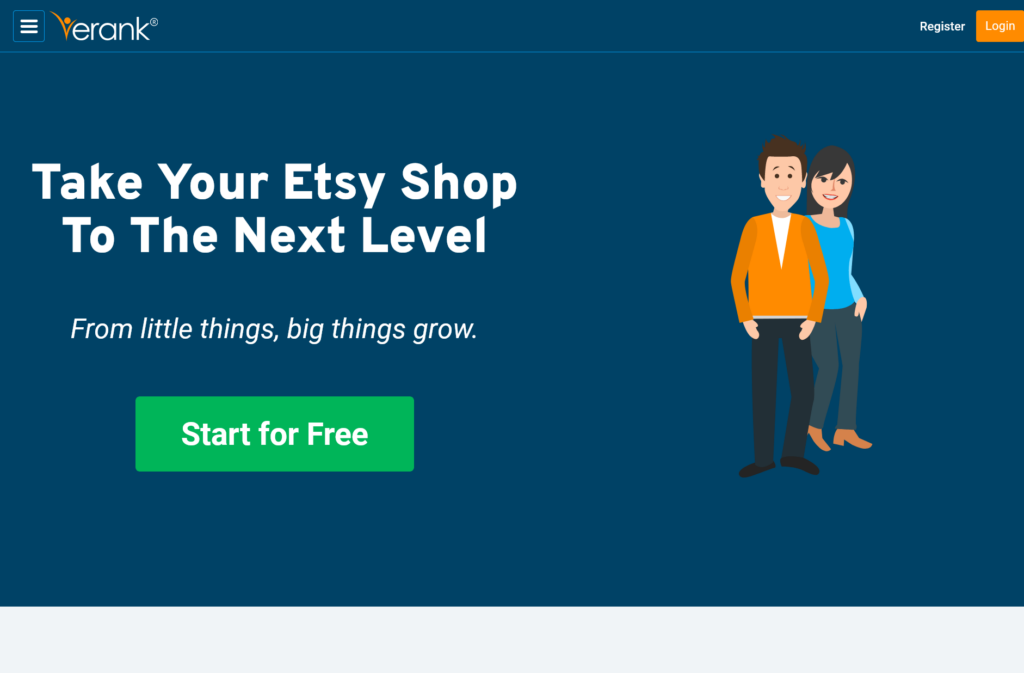
eRank is focused on tracking keyword use on Etsy. It gives data on what words are being used in searches, and what keywords your competitors are using on their pages.
eRank’s Keyword Explorer generates likely keywords around whatever term you input.
For example, if you were to input a term such as “summer dress”, the Explorer may return keywords as “long summer dress” or “summer slip dress”.
Additionally, it will have information on how often these words are searched for on Etsy, and how many clicks each keyword has generated within a given timeframe.
To access even more information, the user can make use of the Keyword Tool. In addition to all information provided by Explorer, Keyword Tool also gives competing keywords and search volume.
If these are not enough, eRank’s Listing Audit feature makes up for that! The Listing Audit will give a comprehensive list of features that each product listing can improve on, from meta tags and descriptions to the page title itself.
eRank offers a free plan, as well as two tiers of paid options: 5.99 per month for Basic paid access, and $9.99 per month for the Pro package.
It is worth nothing that even when using the Pro package, access to Etsy data is not unlimited.
Users are able to check the ranks of pages up to 50 times per day in total, and can check for competitor page keywords up to 200 times per day.
Additional features such as Top Sellers and Tag Report give broader information on your competition and your most and least used tags, respectively.
Overall, Etsy shop owners could have a lot to gain from using eRank to research their competition!
Spyfu
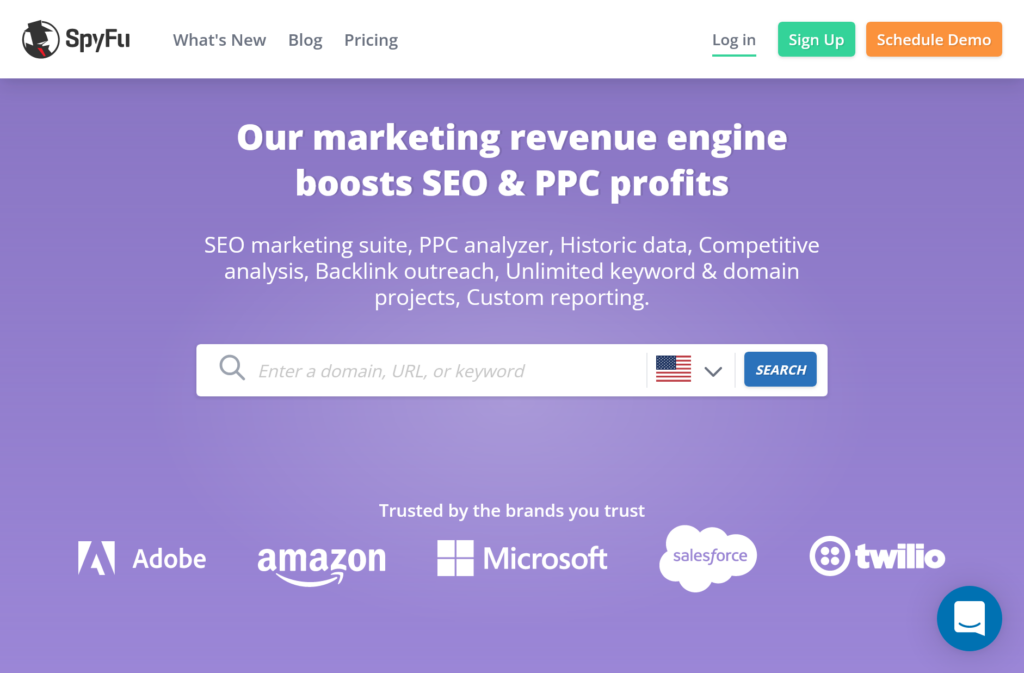
Spyfu is more focused on advertising keywords, and particularly on those used in Google Ads.
They do provide some market analysis tools as well though, particularly those related to identifying new players in the market.
Spyfu doesn’t offer a free tier, instead offering two paid plans at $39 or $79 per month.
With the basic package, you will be able to analyze 10,000 search results, 10,000 data exports, and take PDF snapshots of up to 100 domain overviews.
Additionally, you’ll be able to view 6 months of historical data, receive 5000 keyword rankings per week, and access 250 domain contacts and sales leads.
With the Pro package, the caps are removed and you have unlimited access to all the data Spyfu can obtain, which is undeniably a valuable way to research your Etsy competitors.
SEMRush
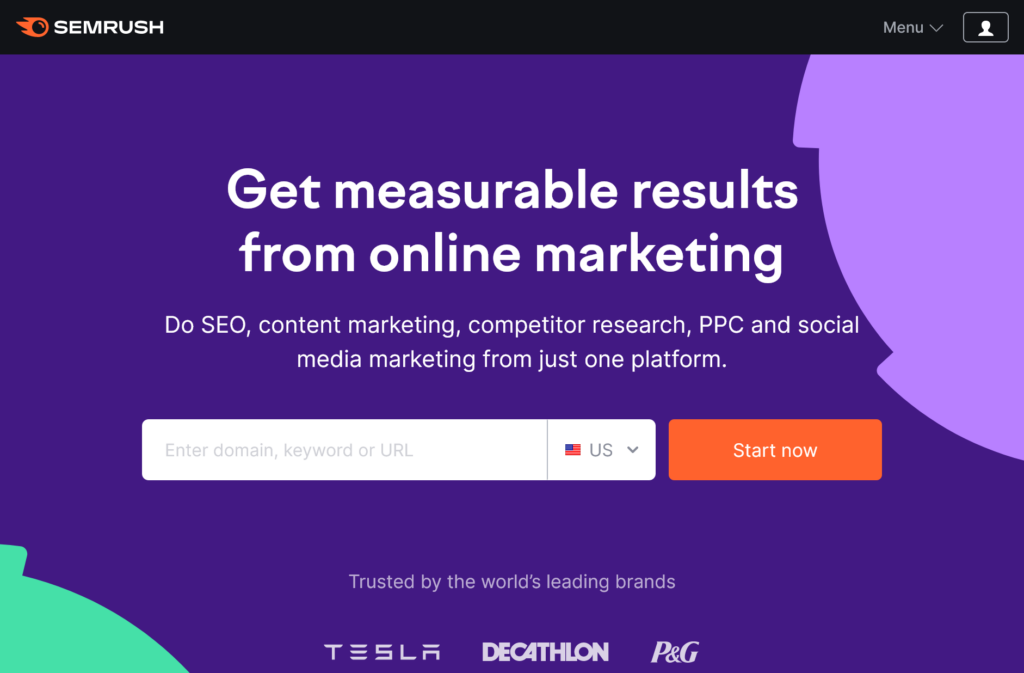
SEMRush is also focused on tracking keyword use, and expands a little into examining social media performance of your competitors.
All in all, SEMRush offers 20 SEO tools that you can utilize to undertake competitor research.
Their services include keyword tracking, backlink analytics, page crawling/auditing, social media management, an entire content marketing platform, historical data, and Google Data Studio integration.
The extent to which you can use each service depends on the level of your subscription. SEMRush offers a (limited) free tier, along with two further tiers of paid options.
Buzzsumo
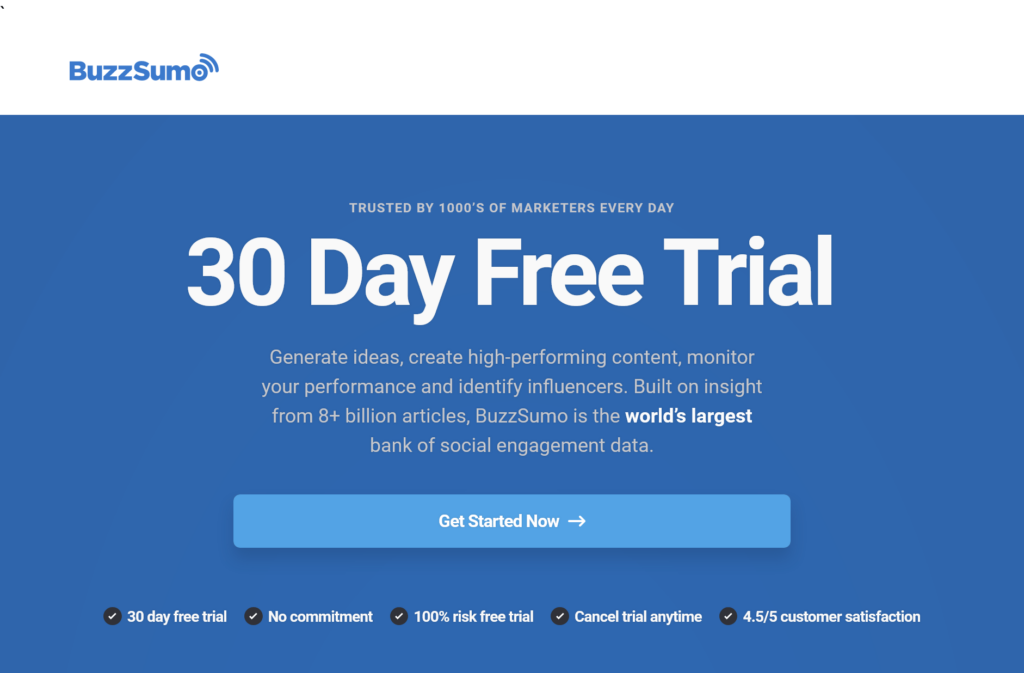
Buzzsumo advertises a high degree of specificity in analysis, offering statistics by platform, time period, and content type.
They claim to be the world’s largest storehouse of all data pertaining to social engagement.
With Buzzsumo, users can search, analyze, and discover their competitors by the following metrics:
- Time period: Whether you want the most shared content of the last 6, 12, or 24 months, Buzzsumo lets you view it all! You can analyze trends over time, or go in-depth on a particular moment
- Domain: By entering an URL into Buzzsumo, you will discover the most shared content of that particular website. enter your competitors’ websites and start your research!
- Content type: Sort by video, graphical, or text content
- Author: Know a high-performing content author? Search their name and discover just what makes them so effective
- Social network: See where your competitors are most socially prominent, and how
- Users of the Pro package can hone their search based on even narrower criteria – Buzzsumo really does let you dissect the competition!
Buzzsumo offers a free tier with limited monthly searches, or a Pro package for $99 per month.
Owletter
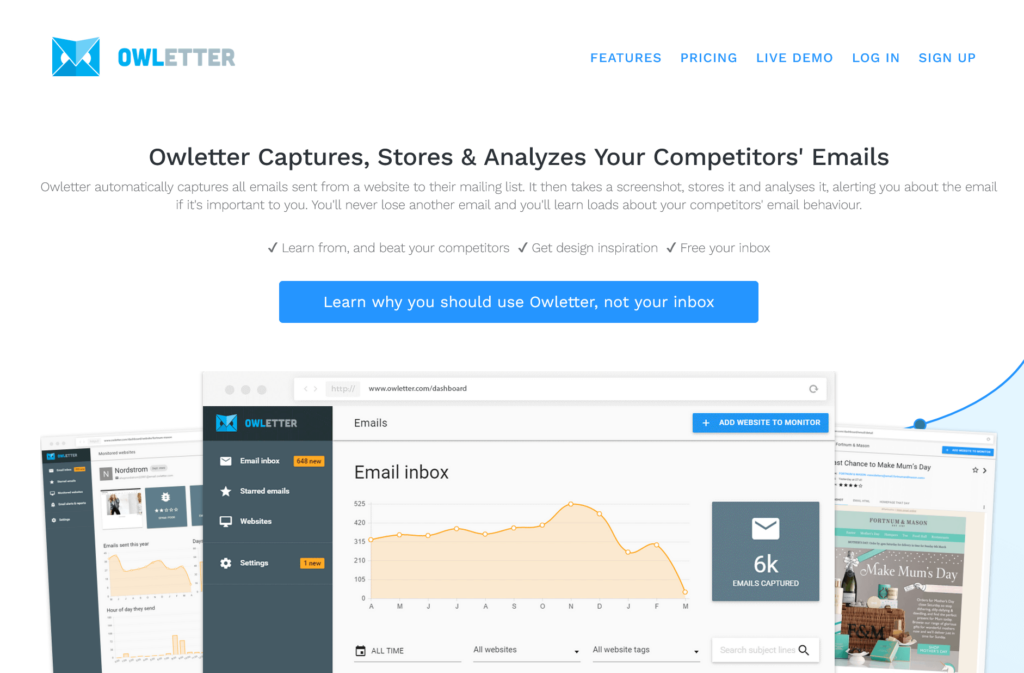
Something of an anomaly among Etsy-SEO tools is Owletter, which focuses on email analysis to help you understand how your competitors send emails. Metrics analyzed include email content and frequency.
Any marketing email sent from a competitor’s website is captured by Owletter, screenshotted and saved. The AI analyzes its content and then groups it with other emails of similar keywords.
There’s no free tier on offer- users can expect to pay between $19 and $79 per month. The plan you select will determine the extent Owletter monitors your competitors, and how many documents you can save within the platform.
What To Look Out For When Researching Your Competitors On Etsy

Their Sales
The easiest way to see whether a particular store is doing well is by looking at their sales.
On every store page, the total number of sales the store has made will be displayed just above the “follow shop” button.
This of course doesn’t tell you how fast they are moving stock- they could have been in business for 10 years, or just one!
You can make a note of their current sales number and return to the store in a week to see how much they are selling in a week. For maximum effectiveness, you’ll want to do this for a few weeks and average out the sales.
You can also try to estimate their sales over a time period from the number of reviews present.
The amount of reviews is correlated to the amount of sales, but of course there are generally far fewer reviews than sales.
The Average Price Of Items
Price point is the easiest quantity to compete on. If you can sell a product cheaper than your competitors, you are much more likely to get customers than they are!
Take a look at the products that your competitors are selling and work out the average price they are selling for.
Although the perfect way to do this is to look at all their product prices and take an average, sometimes this isn’t feasible.
In this case, you can get a rough estimate by sorting by lowest price, picking a few products, then sorting by highest price and doing the same thing.
Of course, this method isn’t perfect, and the more products you pick the more likely you’ll be to get the actual average price of an item.
Other Types Of Products They Sell
Sometimes, your competitors might sell things that you haven’t thought about, but make sense for you to also sell.
For instance, if you’re selling posters, it might make sense for you to also sell some artistic hangers for them.
Understanding what kinds of products might complement your stock is great information to have!
As well as this, some of your competitors may initially draw customers to their pages with a completely different item, and the customers then move to purchasing the items that you also sell.
Understanding this might help you identify whether or not using a particular competitor’s techniques will be useful to you.
If you sell wooden toys, it’s not much use utilizing the keywords of a competitor who mainly sells posters but has some wooden toys on the side!
Reviews
Like we talked about in the “Survey their customers” section, reviews are one of the best indicators of what Etsy shoppers are looking for in your store.
A shop with a high quantity of five star reviews is probably worth looking at to see what customers have enjoyed.
Similarly, a shop with a high quantity of one star reviews is probably worth looking at to see what to avoid!
In Conclusion
Market research is an incredibly valuable tool to assist you in starting up an Etsy shop!
In the article above, we’ve talked about some of the ways it can be useful, and what to look for when doing it in this context.
We’ve also pointed out some of the tools you can use to understand your competitor’s practices better, and learn from them to benefit your own business. Good luck!
